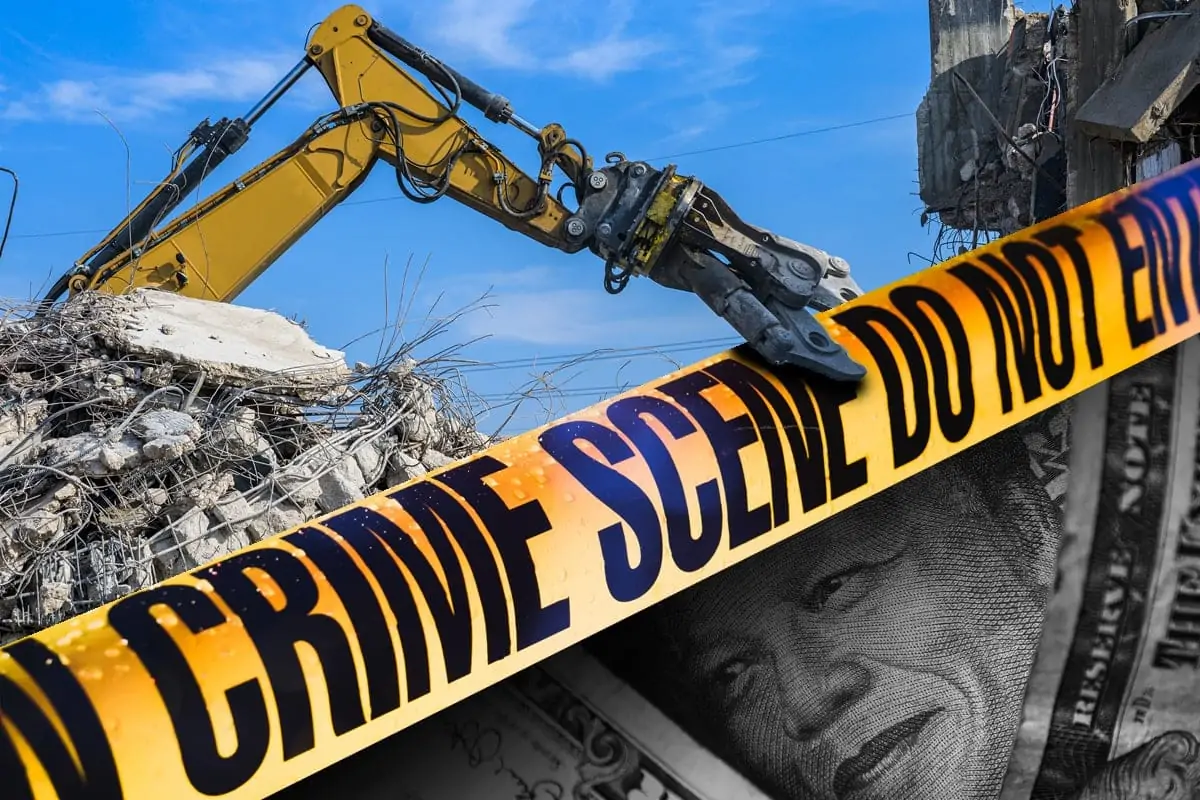
Organised crime in South Africa has taken an alarming turn, as criminal syndicates escalate their boldness, threatening high-ranking officials and exploiting sectors like construction and agriculture. Recent reports from the Sunday Times highlight an audacious incident where individuals associated with known crime bosses in Cape Town brazenly confronted city officials, demanding contracts worth R500 million for their affiliated companies. These aggressors, veiled under the shadow of crime, resorted to intimidation and explicit threats, linking their demands to ongoing violent incidents at construction sites. This brazen display occurred in broad daylight, marking a troubling shift in criminal conduct.
This disturbing trend signals a significant escalation in the grip of criminal activities within the construction sector, which has become a breeding ground for what’s known as “construction mafias.” These clandestine networks masquerade as legitimate entities, pressuring for contracts or subcontracts under the guise that a specific portion, around 30%, should be allocated to “local businesses.” When their demands are not met, these groups unleash a wave of threats, extortion, and violence, leaving behind a trail of disruption and fear.
However, this nefarious modus operandi extends beyond construction, permeating into the agricultural sector, further exacerbating the crisis. The surge of criminality has been underscored by the Global Organized Crime Index 2023, painting a grim picture of South Africa’s position. Shockingly, the index reveals that South Africa ranks among the world’s most afflicted countries by organized crime, witnessing a significant deterioration in both criminality and resilience scores over the past year.
This dire situation places South Africans in the throes of a more severe criminal environment compared to nations like Iraq, Afghanistan, and Lebanon. The emergence of mafia-style groups, armed to the teeth and entangled in high levels of violence, signifies a profound threat. These groups tend to establish their roots in specific geographic regions before expanding their reach, making their presence felt in places like Cape Town, the Western Cape, Johannesburg, Nelson Mandela Bay, and Durban.
Notably, the construction mafia has become notorious for violently disrupting construction sites and extorting protection fees from businesses. Alarmingly, some business forum groups maintain intricate ties with political entities, raising suspicions of acting as proxies for certain politicians, as unveiled in recent reports. Public Works and Infrastructure Minister Sihle Zikalala’s revelation about the staggering cost of R68 billion inflicted by construction mafias on the economy underscores the severity of this issue. The delays caused by these criminal networks force companies to withdraw from projects, resulting in immense financial losses.
Moreover, a recent World Bank study highlights the crippling impact of rampant crime, estimating that it drains at least 10% of South Africa’s gross domestic product annually—equivalent to over R640 billion. This stark reality worsens the already profound income inequality, sounding the alarm for urgent and comprehensive interventions to tackle this burgeoning crisis.
The situation demands a collaborative effort from law enforcement agencies, government bodies, and local communities to stem the tide of organized crime. Effective strategies encompassing stringent law enforcement, bolstered security measures, targeted interventions in vulnerable sectors, and decisive political action are imperative to dismantle these criminal networks. Additionally, fostering economic opportunities and equitable distribution of resources can act as pivotal tools in combating the lure of criminal enterprises.
In conclusion, the rising threat of organized crime in South Africa, as evidenced by the brazen actions of criminal syndicates and their detrimental impact on the economy, necessitates swift and resolute action. Addressing this multifaceted challenge demands a concerted effort from all stakeholders to safeguard the country’s integrity, prosperity, and safety of its citizens from the menacing grip of organized crime.
This website uses cookies.